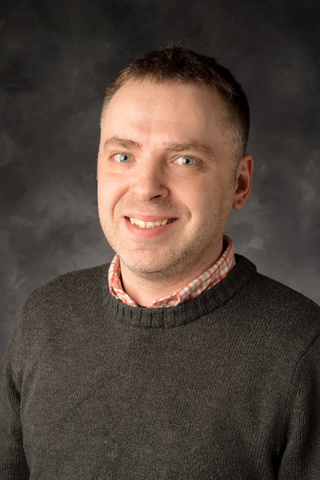By Emily Delgado
Octav Chipara, a professor in the Department of Computer Science in the College of Liberal Arts and Sciences, has been spearheading hearing aid research at the University of Iowa since 2011—and recently received a $1.2 million grant to continue his work.

The National Science Foundation awarded the grant to Chipara, the principal investigator for the project, earlier this year. Chipara is working with three CLAS faculty members — assistant professor Bijaya Adhikari of computer science, as well as associate professors Inyong Choi and Yu-Hsiang Wu of communication sciences and disorders.
The interdisciplinary research project is anticipated to give patients a more hands-on role in their hearing care, which will improve hearing aid satisfaction and overall livelihood.
“The grant will provide funding to support our research, prototype new personalization techniques, and evaluate them through user studies,” Chipara said.
The project has two main approaches for personalizing hearing aids. The first is making hearing aids more accessible and customizable for users.
“We refer to this approach as shallow personalization, as we aim to configure existing sound processing algorithms without fundamentally altering their design,” Chipara said.
The second focus is based on research showing that hearing loss can cause significant disruption of speech processing that traditional hearing aids cannot correct.
“We hope to address the limitations of traditional amplification methods by designing more expressive amplification methods that trigger brain activity consistent with effective speech perception,” Chipara said.
Throughout the years, Chipara has witnessed the dedication to interdisciplinary research from the university and CLAS, allowing faculty from different disciplines to collaborate on projects.
“In this case, faculty from the computer science and communication sciences and disorders departments bring their audiology, machine learning, systems, and neuroscience expertise to work on this problem,” Chipara said. “There are only a few places like Iowa where this type of work could be done.”